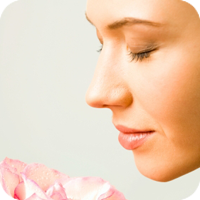
Have you ever noticed how you breathe when you're stressed? Stress typically causes rapid, shallow breathing. This kind of breathing sustains other aspects of the stress response, such as rapid heart rate and perspiration. If you can get control of your breathing, the spiraling effects of acute stress will automatically become less intense. Relaxed breathing, also called diaphragmatic breathing, can help you relieve stress.
Practice this basic technique twice daily, and whenever you feel tense. Follow these steps:

Autogenic means something that comes from within you. During this type of relaxation, you repeat words or suggestions in your mind to help you relax and reduce the tension in your muscles. Find a peaceful place where you'll be free of interruptions. Then follow these steps:
• Choose a focus word, phrase, or image you find relaxing. Examples of words or phrases include "peace," or "I am peaceful." This is called a mantra.
• Sit quietly in a comfortable position.
• Close your eyes.
• Relax your muscles, starting at your head, working down your body to your feet.
• Breathe slowly and naturally, focusing on your word, phrase, or image.
• Continue for 10 to 20 minutes. If your mind wanders, that's okay. Gently return your focus to your breathing and the word, phrase, or image you selected.
• After time is up, sit quietly for a few minutes with your eyes closed. Open your eyes and sit in silence for a few more minutes.

If you have about ten minutes and a quiet room, you can take a mental vacation almost anytime with soothing sounds. Consider music such as relaxation CDs or internet radio stations to help you unwind. To rest your mind and take a visual journey to a peaceful place, consider the following:
Spoken word. These CDs use spoken suggestions to guide your meditation, educate you on stress reduction or take you on an imaginary visual journey to a peaceful place.
Soothing music or nature sounds. Music has the power to affect your thoughts and feelings. Soft, soothing music can help you relax and lower your stress level.

Perform progressive muscle relaxation at least once or twice each day to get the maximum benefit. Each session should last about ten minutes.
Another way of relaxing your muscles is through massage. Massage is a system of pressing and kneading different soft tissues in the body (muscles, tendons, and ligaments). Massage offers a variety of health benefits: pain relief, relaxation, improved muscle tone, stimulation of circulatory and lymphatic systems, and more efficient elimination of waste throughout the body. Although a single massage will reduce fatigue, relax you, and provide mild stress relief, the effects of massage are cumulative. A course of massage treatments will allow you to reap the most benefits. Ultimately, massage can rejuvenate you physically, mentally, and spiritually. Massage rates can vary between $50 and $125 per hour, depending on the massage therapist and the location where you receive your massage. For example, you will pay more for someone to travel to your home to provide massage therapy. Fortunately, many chiropractic centers offer massage therapy as part of their services.
